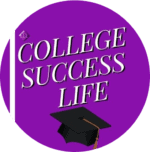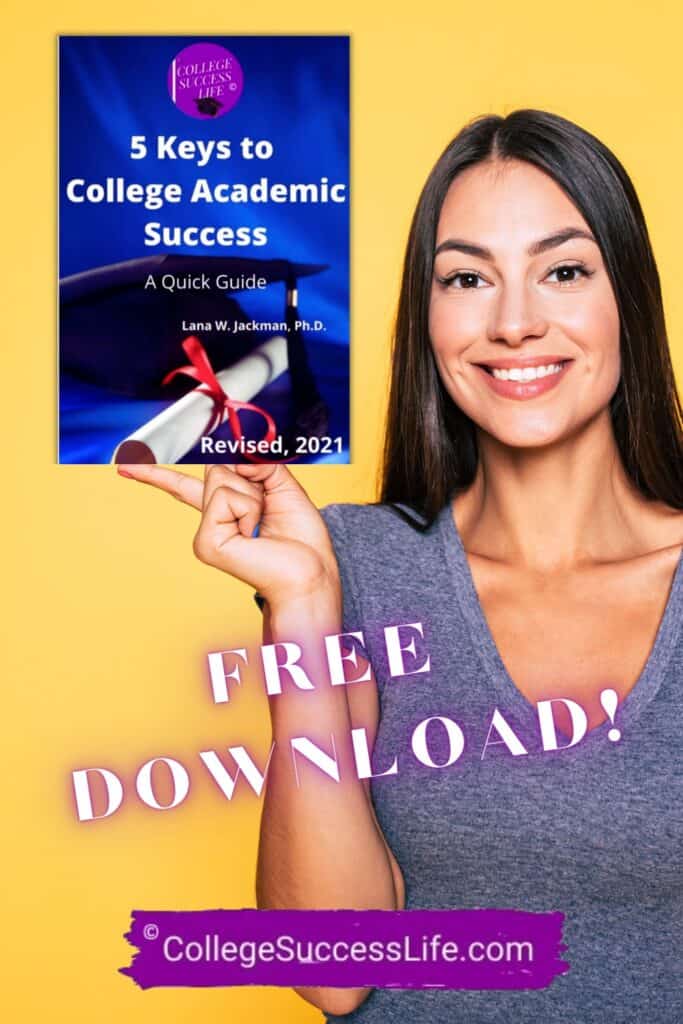[et_pb_section fb_built=”1″ _builder_version=”4.2.1″][et_pb_row _builder_version=”4.2.2″ width=”100%” module_alignment=”center” custom_padding=”9px|||||” global_module=”4766″ saved_tabs=”all”][et_pb_column type=”4_4″ _builder_version=”4.2.1″][et_pb_post_title author=”off” date=”off” comments=”off” _builder_version=”4.4.6″ title_font=”Roboto|700||on|||||” title_text_align=”center” title_text_color=”#0c3bd3″ title_font_size=”39px” title_line_height=”1.7em” meta_font=”|||on|||||” meta_text_align=”center” animation_style=”fade” title_text_shadow_style=”preset1″][/et_pb_post_title][/et_pb_column][/et_pb_row][et_pb_row column_structure=”2_3,1_3″ _builder_version=”4.2.1″ width=”100%” custom_padding=”25px|10px||10px|false|true” animation_style=”fade” box_shadow_style=”preset1″ box_shadow_blur=”10px”][et_pb_column type=”2_3″ _builder_version=”4.2.1″][et_pb_text _builder_version=”4.4.7″ text_font=”Roboto||||||||” text_text_color=”#242424″ text_font_size=”16px” text_line_height=”1.2em” header_font=”Roboto|700||||on|||” header_text_align=”center” header_letter_spacing=”2px” header_line_height=”1.2em” header_2_font=”Actor|700||||on|||” header_2_text_align=”center” header_2_letter_spacing=”2px” header_2_line_height=”1.2em”]From time to time, we screen and accept guest post articles we think may be of benefit to you as you pursue your college and career goals.
This is not a product/service endorsement.
But we think it presents an issue you should think about as a college student who may be experiencing the challenges mentioned.
We would sincerely appreciate any constructive feedback you would like to share with us and/or our guest post blogger.
EmailUs: Collegesuccesslife@gmail.com
[/et_pb_text][/et_pb_column][et_pb_column type=”1_3″ _builder_version=”4.2.1″][et_pb_image src=”https://collegesuccesslife.com/wp-content/uploads/2020/05/Blog-Post.jpg” alt=”Guest Blogging” title_text=”Blog Post” _builder_version=”4.4.6″ box_shadow_style=”preset1″][/et_pb_image][/et_pb_column][/et_pb_row][et_pb_row _builder_version=”4.4.7″][et_pb_column type=”4_4″ _builder_version=”4.4.7″][et_pb_divider color=”#890099″ divider_style=”dotted” divider_weight=”5px” _builder_version=”4.4.7″][/et_pb_divider][/et_pb_column][/et_pb_row][et_pb_row _builder_version=”4.2.1″ width=”100%” custom_padding=”25px|10px||10px|false|true” animation_style=”fade” box_shadow_style=”preset1″ box_shadow_blur=”10px”][et_pb_column type=”4_4″ _builder_version=”4.2.1″][et_pb_text _builder_version=”4.4.7″ text_font=”Roboto||||||||” text_text_color=”#242424″ text_line_height=”1.2em” header_font=”Roboto|700||||on|||” header_text_align=”center” header_letter_spacing=”2px” header_line_height=”1.2em” header_2_font=”Roboto|700||||on|||” header_2_text_align=”center” header_2_text_color=”#890099″ header_2_line_height=”1.2em” hover_enabled=”0″ header_2_text_shadow_style=”preset1″]
Princeton University Study Hack Exposed!
Do you want to know how to use this secret hack to boost your grades quickly and eliminate the stress of failing your next exam?
Then read on to know how.
Use Active Recall
Here’s how you use active recall:
After you read the material, you will close your eyes and recite the material in your own words. Here, you are framing the material so it makes sense to you.
This is how you create the solution to the problems you do have and, as a result, you’ll have a better comprehension of the material from a conceptual point of view.
Research shows that closing your eyes is a very effective way of recalling information, particularly in short term memory mode.
In a Princeton University study, students who took their notes by hand, without copying word for word, performed better on conceptual based tests than those who took their notes with a laptop. You can see this research here.
You repeat this process in each class without looking at your notes.
And in case you didn’t know, conceptual based tests are tests designed to assess how well you understand a topic.
This is common for STEM classes where the ability to understand what’s happening and why everything is happening is far more important than knowing a random fact like in a history class.
These conceptual based tests can either be multiple choice or free response. You can see a further explanation of conceptual based tests here.
To recap, here’s how you implement active recall:
- Close your eyes and recite the material out loud in your own words after reading it (or watching a video on the topic)
- Then handwrite your notes in your own words
- Repeat
I encourage you to try it when you study next time and watch your comprehension blossom instantly.
Need More Convincing?
If you are not sold on active recall, then listen to what the Association for Psychological Science has to say about the effectiveness of active recall.
Mueller and Oppenheimer reported that active recall was the most effective study strategy being used. A wide range of learners from various ages saw an  increase in their comprehension, retention and test scores.
increase in their comprehension, retention and test scores.
Now this study tested a strategy called practice testing where at some point in your study session, you test yourself on what you’ve learned in your study session or in previous study sessions.
Here, you are actively using your brain to identify gaps in your knowledge and you are shaping the material in an understandable way for you to understand without relying on anyone else.
In other words, you are doing things instead of watching things when it comes to studying.
You can see a video summary of this research here.
From my experience using active recall, your test scores should average in the mid-90s to the high 90s when you implement it.
In difficult classes, the average might be lower because of the in-depth nature of the content. Expect averaging in the low 90s to mid-90s for these difficult classes regardless of what your major is.
SO much more does, however, go into effective studying than just using active recall. But if you do use it, I can assure you that you’ll achieve any academic aspiration you’d like, guaranteed.
#Collegestudents #Collegesuccesslife #activerecall #PrincetonUniversity
Works Cited:
Ali Abdaal/Ali Abdaal. “How to study for exams – Evidence-based revision tips.” Online Video
Clip. YouTube. YouTube, 2018 4 April. Web. 9 May 2020.
Gough, Myles. “Closing Your Eyes Helps You Remember More Accurately.” Science Alert,
Science Alert, 17 January 2015, https://www.sciencealert.com/closing-your-eyes-helps-you-
remember-more-accurately.
Mueller Pam A., Oppenheimer Daniel M. The Pen Is Mightier Than the Keyboard: Advantages
of Longhand Over Laptop Note Taking. Washington, D.C.: Association of Psychological
Science, 2014. Print.
[/et_pb_text][/et_pb_column][/et_pb_row][et_pb_row column_structure=”2_5,3_5″ _builder_version=”4.4.7″][et_pb_column type=”2_5″ _builder_version=”4.4.7″][et_pb_image src=”https://collegesuccesslife.com/wp-content/uploads/2020/05/EvanCruz-200×300.jpg” alt=”Evan Cruz” title_text=”EvanCruz” _builder_version=”4.4.7″][/et_pb_image][/et_pb_column][et_pb_column type=”3_5″ _builder_version=”4.4.7″][et_pb_text _builder_version=”4.4.7″]Author Bio: Evan Cruz is the founder of Join the Island, the blog dedicated to helping young adults become more productive, reach their full potential and navigate college with extremely insightful hacks and techniques. He is a graduate from Florida International University in Miami, Florida with a Bachelor of Science in Civil Engineering (magna cum laude).
[/et_pb_text][/et_pb_column][/et_pb_row][/et_pb_section][et_pb_section fb_built=”1″ _builder_version=”4.2.2″ custom_padding=”0px|10px||10px|false|true” global_module=”4756″ saved_tabs=”all”][et_pb_row _builder_version=”4.2.2″ width=”100%” module_alignment=”center” animation_style=”flip”][et_pb_column type=”4_4″ _builder_version=”4.0.1″][et_pb_text _builder_version=”4.4.4″ text_font=”Roboto|700|||||||” text_text_color=”#8700c6″ text_font_size=”1px” header_font=”Roboto|500||||on|||” header_text_align=”center” header_text_color=”#8700c6″ header_letter_spacing=”3px” module_alignment=”center” custom_padding=”16px||4px||false|false” header_text_shadow_style=”preset1″ border_radii=”on|5px|5px|5px|5px” border_width_all=”1px” border_color_all=”#890099″ border_style_all=”ridge” border_style_all_tablet=”” border_style_all_phone=”” border_style_all_last_edited=”on|desktop” box_shadow_style=”preset6″ box_shadow_blur=”8px”]
A Word to the Wise…
[/et_pb_text][/et_pb_column][/et_pb_row][et_pb_row column_structure=”3_5,2_5″ _builder_version=”4.0.1″ width=”100%” custom_padding=”||1px|||”][et_pb_column type=”3_5″ _builder_version=”4.0.1″][et_pb_text _builder_version=”4.4.4″ text_font=”Roboto|500|||||||” text_text_color=”#000000″ border_color_all=”rgba(0,0,0,0)”]
Whenever a college student faces an academic and/or social challenge, they often ask a peer or a friend first for advice. And that’s okay.
However, resolving the issue to your best advantage often requires consulting with an academic advising professional as well.
Your academic adviser knows the campus academically, administratively, and socially.
And what they don’t know, they can point you to the person who does know. Include this strategy in your current plan for college success.
And we’re always available to help as well!
[/et_pb_text][/et_pb_column][et_pb_column type=”2_5″ _builder_version=”4.0.1″][et_pb_image src=”https://collegesuccesslife.com/wp-content/uploads/2019/10/advice@framemily.jpg” _builder_version=”4.2.2″ animation_style=”fold” border_radii=”on|4px|4px|4px|4px” box_shadow_style=”preset1″][/et_pb_image][/et_pb_column][/et_pb_row][/et_pb_section][et_pb_section fb_built=”1″ _builder_version=”4.4.4″ use_background_color_gradient=”on” background_color_gradient_start=”rgba(179,70,242,0.39)” background_color_gradient_end=”#FFFFFF” background_color_gradient_start_position=”15%” custom_padding=”||4px|||” animation_style=”flip” border_radii=”on|2px|2px|2px|2px” box_shadow_style=”preset6″ box_shadow_position=”outer” global_module=”4755″ saved_tabs=”all”][et_pb_row _builder_version=”4.4.4″ width=”100%” module_alignment=”center” custom_padding=”0px|3px||3px|false|false”][et_pb_column type=”4_4″ _builder_version=”4.0.1″][et_pb_text _builder_version=”4.4.6″ text_font=”Roboto|700|||||||” text_text_color=”#000000″ text_font_size=”14px” background_layout=”dark” custom_padding=”|10px||10px|false|true”]
Disclaimer Reminder: A college student’s first line of inquiry should always be with their campus academic adviser. College Success Life Advising Sessions provide additional problem-solving options to undergraduate and graduate students for further exploration on their individual campuses. Students should always consult their assigned adviser not only during the course selection process but periodically to keep apprised of programmatic changes, testing requirements, course additions/deletions, GPA modifications, etc.
[/et_pb_text][et_pb_text admin_label=”Text” _builder_version=”4.4.6″ text_font=”Roboto|700|||||||” text_text_color=”#000000″ text_font_size=”14px” text_line_height=”1.5em” background_layout=”dark” custom_padding=”|10px||10px|false|true”]
Affiliate Disclosure: This blog site is partially supported by affiliate links and Amazon Associates. If you purchase via our links, we may make a referral fee – at no cost to you. Thanks for supporting our free content! And don’t forget to share this post!
You can unsubscribe at any time by clicking the link in the footer of our emails. For more information, please review our privacy practices.
[/et_pb_text][/et_pb_column][/et_pb_row][/et_pb_section]









